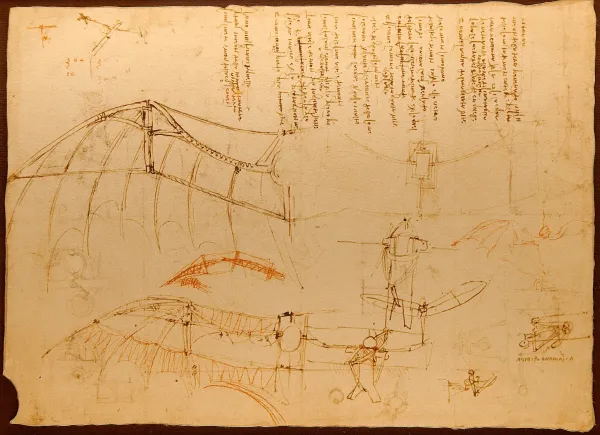Weird happenings
FedCM, OIDC and IndieAuth are converging; Iroh gives us p2p superpowers; and, the Norwegian Buddhist Foundation has partnered with us as early adopters!

It's been two months since the latest restart of Weird. A whole lot has happened since then, so let's recap.
My past two entries on Weird were written on my personal blog, but since we want to bring Weird and Commune closer together as sibling projects we'll use this blog for future Weird posts.
Weird is a web application built to increase the agency of internet users. We are building three interconnected pillars as our foundation:
weird-id– Independent social sign-in rooted in the OIDC standard as keymasterweird-cms– A personal web space creatorweird-net– An actually-social network of shared purpose
Social sign-in for indies
The focal point of Weird Netizens was the convergence of OIDC, Rauthy and FedCM as open identity technologies. I've dabbled in online activism for a long time and never before have I experienced these kinds of ripple effects.
- February: A contributor to the development of FedCM raises awareness about a potential fork in the road for the FedCM spec, which would make it yet another Big Tech exclusive if the wider internet community did not engage. The call to action is amplified by another activist a week later.
- March: One of the FedCM spec authors invites indie developers to demonstrate the viability FedCM as a completely provider-agnostic technology. If no one answers the call, the spec writers may consider the indie use case void.
- April: After a month of silence we designate a Weird collaborator to begin work on FedCM. This kicks off a flurry of activity that to this day shows no sign of stopping.
- May: Experimental FedCM support has landed in Rauthy, Obligator, Solid and IndieAuth!
As a cherry on top, this meeting of identity-savvy minds has led to a pending update in the IndieAuth spec which makes it compatible with OIDC, and by extension Rauthy.
This is a big deal for Weird's identity layer (based on Rauthy), because it means there's a path to supporting both OIDC and IndieAuth interchangeably. Whichever type of login path works best for you, Weird's got you covered!
We've already got the basic OIDC path up and running:
- Sign up on weird.one, then use that ID to sign into..
We're just a small config change away from Weird being a login option on fellow indie platforms like Codeberg. Imagine..

Really any site that supports social logins could feature Weird as an option, but we don't expect mainstream, closed services to care about what we're doing.
Personal Space
In the last few weeks we welcomed a new addition to our stack: Iroh, a p2p toolkit for building distributed apps. While we played around with local-first capabilities (which harmonizes with p2p) in the earliest prototypes of Weird years ago, this time around we were pretty adamant about being as boring as possible in the MVP stage.
But sometimes the pieces just click ever so beautifully into place. Iroh got on our radar via related ventures like Noosphere. What was supposed to be a slow-burn bit of research on the side turned into what can be best described as tech-love at first sight 💞
In talking with the Iroh team, our game venture Fish Folk came up as another project that might benefit from Iroh's p2p stack. Days later a PR was merged that quite literally punched through some so-far-insoluble constraints of our netcode by making the connections between players more direct.
A few days ago our game featured in Iroh's introduction video.
In stark contrast to other p2p & dweb technologies we've played with - which are exciting due to their implications for the future - Iroh brought instant gains in our present.
Impending devlogs will go into much more detail about Iroh's role in Weird's architecture, but it's not very complicated:

Purposeful Network
While Weird is innately online, we also want to ground ourselves in the local and predominantly non-digital.
To that end, I've been in touch with the General Secretary (the bossman, if I'm understanding the non-profit lingo correctly) of the Buddhist foundation of Norway. He leads a center here in Oslo which I've gone to a couple times to meditate and socialize.
They'd like to connect local Buddhists who want to practice ‘right livelihood’ as ethical entrepreneurs. It’s part of the Noble Eightfold Path in Buddhism, somewhat similar to the Ten Commandments and other such holy texts. Right Livelihood is essentially about aligning ones profession (source of income) with ones spiritual code of ethics.
They wanna create a very basic network that can play the role of matchmaker for Buddhists in Oslo/Norway/Scandinavia who are interested in creating pro-social businesses together with likeminded practitioners.
The v1 of what they need is basically just an excel sheet, so I've recommend that they keep it as simple as that to begin with. But we're immensely excited about the prospect of this organizing being facilitated by Weird; it’s exactly this kind of local, grassroots networking that we want to emulate in the digital realm! 🌱
They'll divulge some personal information along these lines:
- name
- contact info
- interests/skills
- location
- capacity (full/part-time)
- compensation (salaried or volunteer)
Based on that they can match people together and get them talking about possible alignments in their mutual ventures.
Eventually our network will be able to make all sorts of smartly automated connections between these people, but for a start just collecting them in a database is enough to let basic filters ("within 5-50km") and manual curators do the rest. It's a closed network, but their data will be available to everyone else on the network (we'll build in public/private toggles for data sharing later).
If this (Buddhist foundation in Oslo committing to a net-of-purpose trial) moves forward, which seems likely, they’re gonna do a bigger sendout to their members around 15. June 2024 🗓️
That gives us a soft deadline to work with. We're gonna try to have something minimally workable for them by that time.
Team
Our overarching mission of a Community OS requires a big-tent approach to team-building. As an extension of that vision, Weird is being developed in the open, as a collective. The lines between "core team members" and "contributors" are intentionally blurred.
There's an unlimited number of slots available in Team Weird; all anyone's gotta do is show up, start in and stick around.
Core
Infrastructure Partners
App Partners
Stuff to do
For anyone wanting to get involved; we're still at a stage where the core architecture is still being shaped and documentation is sparse.
That doesn't mean there aren't any entry points, but you'll have to meet us more than half-way to figure out what needs doing by asking questions, reading/testing code and asking even more questions.
Soon, the easiest thing for web developers to help out with will be to make their own Weird page.
- The easy way will be to make a custom page on weird.one.
- The hard way will be to self-host an instance of Weird on your own domain.
Meanwhile, here are a few tangential tasks that would be highly advantageous to us to make progress with:
- Add more authentication providers to Rauthy.
- Make a miniscule chat app in Iroh. Find help in the chat-server.md tutorial and references like nag763/tchatchers and Yengas/rust-chat-server
- Port editable-website from its sqlite backend to an Iroh-based backend.
- Anyone well versed in Go and OIDC can conntribute SSO to one of our 'Relying Parties'.




